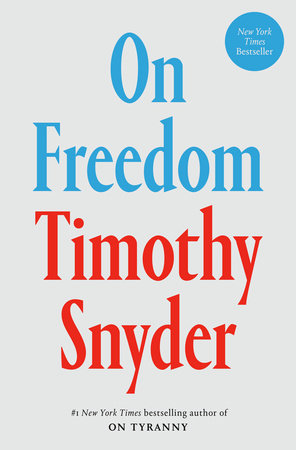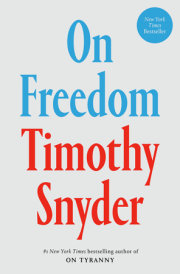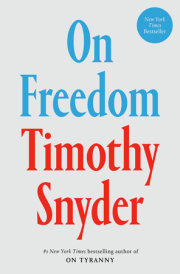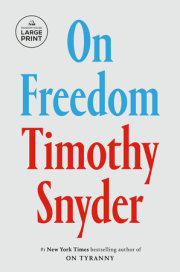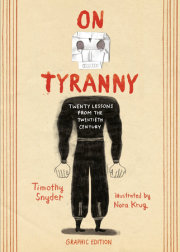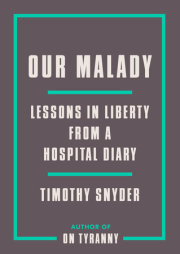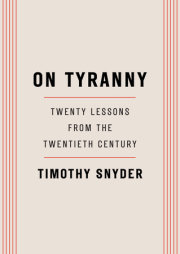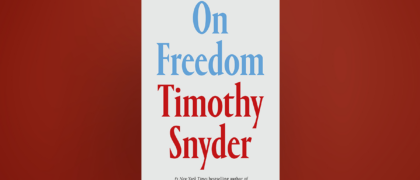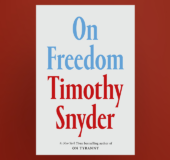SovereigntyLeibThe German philosopher Edith Stein put her own body forward during the First World War. A graduate student, she took leave to volunteer as a nurse. When she returned to her dissertation, her time with the wounded guided her argument about empathy. “Do we not,” she asked, “need the mediation of the body to assure ourselves of the existence of another person?”
The word she used for “body” was Leib.
The first form of freedom, as I hope to show, is sovereignty. A sovereign person knows themselves and the world sufficiently to make judgments about values and to realize those judgments.
For Stein, we gain knowledge of ourselves when we acknowledge others. Only when we recognize that other people are in the same predicament as we are, live as bodies as we do, can we take seriously how they see us. When we identify with them as they regard us, we understand ourselves as we otherwise might not. Our own objectivity, in other words, depends on the subjectivity of others.
This is not how we are accustomed to seeing things. We imagine that we can just take in information ourselves, as isolated individuals. We believe that when we are alone, we are free. This mistake ensures that we are not.
The word Leib gets us to a new standpoint. The German language has two terms for “body,” Korper and Leib. The word Korper can denote a person’s body but also a “foreign body” (Fremdkorper), a “heavenly body” (Himmelskorper), the “racial body” (Volkskorper), and other objects thought to be subject to physical laws. A Korper might be alive, but it need not be (compare corpse). Stein says, “There can be a Korper without me, but no Leib without me.”
The word Leib designates a living human body, or an animal body, or the body of an imaginary creature in a story. A Leib is a Korper, subject to physical laws, but that is not all it is. It has its own rules and so its own opportunities. A Leib can move, a Leib can feel, and a Leib has its own center, impossible to graph precisely in space, which Stein calls a “zero point.” We can always see some of our Leib, but we can never see all of it.
Our liveliness is shared. When we understand another person as Leib rather than Korper, we see the whole world differently. The other person has a zero point, just as we do; those zero points make connections, creating a new web of understanding. It is thanks to the Leib of another that we are liberated from thinking of ourselves as outside the world, or against the world. A little leap of empathy is at the beginning of the knowledge we need for freedom.
If it is just me against the world, then all my grumpy late-night pronouncements are justified and true and deserving of attention. But let us imagine that my daughter (also) gets cranky when she is tired and says entirely unreasonable things. Seeing her, seeing that, I recognize a phenomenon in the world, and suddenly know more about myself. That example I owe to questioning of my son about the argument of this book. Knowing me and knowing his sister, he immediately knew what I meant, and then he could also see that this is objective knowledge, of the kind we cannot get alone.
Thanks to the Leib, phenomena come into view, those that are essential for life and for freedom: birth, sleep, waking, health, breathing, eating, drinking, sheltering, lovemaking, illness, aging, death. None of us remembers being born, but all of us were born. None of us will remember dying, but we remember others dying. Empathy is not just some vague urging to be kind. Empathy is a precondition for certain knowledge of the world. The isolated individual, trying to contemplate the world alone, has no chance at understanding it.
Because the Leib is at the source of knowledge, it is also at the source of a politics of freedom. When we see other people as subjects like ourselves, we begin to gain objective knowledge about the world. If we see others as objects, we will lack essential knowledge not only about them but also about the world and about ourselves. This makes us vulnerable to those who would abuse us and rule us. We will see ourselves as objects, and we will be manipulated by others who treat us as such.
In this light, negative freedom is the self-deception of people who do not really wish to be free. Those who present freedom as negative ignore what we are, ignore the Leib. If we are just Korper, physical bodies, then the idea of negative freedom would make a kind of sense. Objects can be restrained by other objects. Freedom could just be freedom from, without aspirations or individuality, without any sense of what life is or should be. But when we correctly apprehend ourselves as a body in a human sense, as a Leib, we understand that freedom must suit that special state. It must be positive, not negative. Barriers are bad not because they block us as objects, but because they hinder us from understanding one another and becoming subjects.
Negative freedom is not a misunderstanding but a repressive idea. It is itself a barrier, a barrier of an intellectual and moral kind. It blocks us from seeing what we would need to be free. Those who want us unfree create barriers between us, or dissuade us from building the structures that would allow understanding. When we see ourselves as Leib, and understand the world, we see what we would have to build together in order to become free.
LifeEdith Stein only ever held one university job, for a single academic year. She lost it when Adolf Hitler came to power. In April 1933 she wrote a letter to the pope, in which she tried to explain, in language he would understand, the position of Germany’s Jews: “We have seen deeds perpetrated in Germany which mock any sense of justice and humanity, not to mention love of neighbor.” She called the Church’s silence about Jewish oppression a “black mark” on its history.
Hitler took a view of the human body utterly opposed to Stein’s. In Mein Kampf, he wrote of Fremdkorper, “foreign bodies,” infesting the Volkskorper, the German racial organism. Rather than seeing each person in Germany as a distinct human body, Nazis portrayed the German race as a single organism and the Jews as the foreign objects, bacteria or parasites.
When my children were smaller, we lived in Vienna. When my daughter was in first grade and my son in third, we commuted to school on scooters across the Heldenplatz, where a huge crowd had welcomed Hitler just before Germany annexed Austria. That year I took my son to soccer practice in a stadium twice a week. One day, the coaches passed out violet jerseys, Leibchen, a word that sounds like “little body.” The boys threw off what they were wearing, pushed their arms and heads into their new shirts, and suddenly looked like a team.
Five years before that, when we waited for the bus for kindergarten, my then-three-year-old son was fascinated by the machines used to dig into the sidewalk and to spread tar on the exposed areas. The workers were preparing to lay Stolpersteine, “stumbling stones,” palpable memorials to murdered Jews who had lived there. These inscribed metal plates, embedded in the pavement, remind us of where Jews once lived. The information they carry—names, addresses, sites of death—give us a chance to rehumanize, to restore, at least in imagination, what they lost. Before the Jews were killed, they were stripped of everything: first their property, then their clothes. Like the million or so other Jews murdered at Auschwitz, Edith Stein had to disrobe. This was theft, of course, but mainly humiliation, treating a Leib as a Korper, preparing everyone for murder.
Before my son’s birth in Vienna, German was for me a language of death: of Hitler’s speech at the Heldenplatz, of the sign over the gates of Auschwitz, of all the thousands of sources I had read in order to write about the Holocaust and other atrocities. Korper in all its forms was familiar, Leib less so. With my son, German became a language of life. I heard the word Leib in a Vienna maternity ward, from a nurse trying to teach breastfeeding.
Mothers remain in Austrian hospitals for ninety-six hours after giving birth, to learn to wash and feed the baby. In that space with those bodies for four days, I learned things I would not otherwise have known. The predicament of nurse, mother, and infant was different from mine, but I could understand something about it, then about myself and the world. I am freer as a father for having been there.
Your Leib pushes back into the world, changing it. It translates physics into pain and pleasure, chemistry into desire and disappointment, biology into poetry and prose. It is the permeable membrane between necessity and freedom. It is a Leib that is capable of the kind of concentration that marks a free and sovereign person. Korper we concentrate in a camp.
Copyright © 2024 by Timothy Snyder. All rights reserved. No part of this excerpt may be reproduced or reprinted without permission in writing from the publisher.

